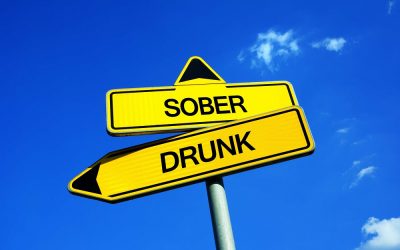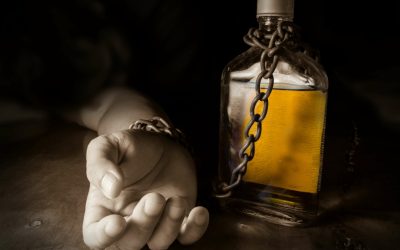While narcissists thrive on control, alcohol can make them more impulsive and unpredictable, creating a dangerous paradox where their need for dominance clashes with their impaired judgment. Understanding the relationship between narcissism and alcoholism is crucial https://whiskyetmets.com/alcohol-and-bruising-why-some-don-t-bruise-easily-3 for identifying toxic behaviors and seeking appropriate interventions. Early intervention is key, as both conditions feed off each other, perpetuating a downward spiral. The comorbid psychological distress stemming from both conditions can lead to a tumultuous environment, affecting not only the individual but also those around them.
Supporting a loved one struggling with narcissism and alcoholism can be difficult, but it is important to approach the situation with compassion and understanding. Supporting them with emotional support and encouraging them to seek professional help can be effective ways to help them overcome their addiction and manage their narcissistic tendencies. In addition to their alcohol misuse, high functioning alcoholic narcissists display distinct narcissistic traits.
- A narcissist alcoholic is often manipulative, self-absorbed, and emotionally abusive, and alcohol can intensify these destructive tendencies.
- Addressing both conditions simultaneously through integrated treatment can lead to effective recovery and a healthier future.
- This dynamic is particularly destructive in cases where the narcissist weaponizes sobriety, promising reform during periods of clarity only to relapse and repeat the cycle.
- If you’re experiencing covert narcissistic abuse in a relationship, you may want to consider some of the following ways to protect yourself.
- Narcissistic personality disorder (NPD) and alcohol use disorder (AUD) share unique risk factors and often overlap with other conditions.
Finding Healing in Narcissistic Abuse Support Groups

This documentation can serve as evidence to counter any false claims or manipulative tactics employed by your narcissistic spouse. With the right legal support and thorough preparation, you can navigate the legal challenges and protect your rights and interests, hand in hand. A person with covert narcissism may be more prone to holding grudges.

A quick note on terminology
However, treatments like psychotherapy, group support, and self-care strategies can help people with either condition feel much better. If you answered “yes” to most of the questions above, speaking with a therapist might be a good idea. Although people with AUD may relapse or have treatment setbacks, they can recover from the disorder. Learning healthy coping strategies can help them remain sober when they face triggers. Healthcare professionals and psychologists may use a set marijuana addiction of criteria from the Diagnostic and Statistical Manual of Mental Disorders, Fifth Edition (DSM-5) to diagnose narcissism or AUD. Alcoholism is used to describe the chemical and psychological dependence on alcohol that a person may have.
Their behavior is destructive.
These co-occurring mental health conditions can make it particularly challenging for clinicians, let alone friends and family, to pinpoint where the problems stem from. Other people have experienced narcissistic abuse and have also overcome the emotional pain that comes from it. You can meet some of them by joining a support group online or in your town. Covert narcissists may often engage in gaslighting because it’s a subtle way of manipulating others without making it too obvious. You may also find it helpful to talk to a therapist about your experiences. Treating both narcissistic personality disorder (NPD) and alcohol use disorder (AUD) simultaneously is crucial for effective recovery.
- Establishing a comprehensive safety plan is crucial, especially if there are concerns about violent behavior from your narcissistic ex-spouse.
- So you can see that the first time transgression, the first time the covert narcissist uses alcohol to overcome the covert part of his disorder is not easy.
Think about a typical alcoholic personality, the way that people with alcoholism relate to others and see themselves. Consider the similarities with the list we shared earlier on covert narcissist alcoholic abusive personality disorder signs. Alcoholics will say they can stop drinking anytime they want.
What is a Narcissistic Alcoholic?
- Pathways Recovery Center uses a holistic approach to treatment for individuals with alcoholism and co-occurring NPD.
- Alcohol serves several psychological purposes, several psychological needs very effectively.
- These supportive social circles can help restore a sense of belonging and validation, which is crucial for your recovery.
- Alcohol can have a profound impact on individuals with narcissistic personality disorder (NPD).
- While alcoholism does not directly cause narcissism, chronic alcohol abuse can mimic narcissistic traits.
Professional therapy can offer tailored support and coping strategies to help you navigate this process. However, when protecting yourself from covert narcissistic abuse, you may want to skip direct confrontation. Try to calmly explain how you feel but if the other person isn’t receptive, you may want to end the conversation and consider how you want to proceed with the relationship. Violence isn’t a formal symptom of narcissistic personality disorder. This means that the condition doesn’t lead to aggressive or violent behaviors but, like anybody else, these are possible under some circumstances.

Another study from 2019 found a link between drinking and the narcissistic traits of devaluing and entitlement-rage. Threatened egotism was listed as a factor that motivated increased alcohol use. Risk factors for NPD include having difficult relationships with parents or caregivers during a person’s developmental years that may include excessive praise or criticism. A dual diagnosis (or co-occurring disorder) is when one person has a mental health disorder along with a drug or alcohol abuse problem.
Behavioral
Therapy and medications can be effective for individuals with AUD and NPD. Professional help can provide strategies for managing symptoms and promoting recovery. Both conditions may influence the other, and some symptoms or behaviors of each condition can overlap. Alcohol use disorder (AUD) describes a person’s chemical and psychological dependence on alcohol.
For instance, alcoholic narcissists may abuse alcohol while also exhibiting narcissistic behaviors. Additionally, NPD can manifest in different forms, such as vulnerable narcissism or grandiose narcissism, each with its unique traits and challenges. A person suffering from both narcissism and alcoholism often exhibits erratic and harmful behaviors. Some narcissists become aggressive and domineering when intoxicated, while others become more emotionally manipulative. This duality reflects the narcissist’s underlying fear of vulnerability—alcohol lowers inhibitions, revealing either rage or covert tactics to maintain control. For instance, a narcissist might alternate between belittling loved ones and playing the victim to elicit sympathy.
A person with this disorder will do whatever it takes to defend their fragile perception of themselves, typically by exaggerating it and forming a group of admirers that they can rely on. These admirers may even feel somewhat addicted to narcissist, stuck in a co-dependent relationship that could be enabling if that person is a narcissistic addict. Allowing yourself to grieve the loss of the relationship is an important step towards emotional recovery. Processing emotions like shame and guilt feels vital in the healing journey after leaving a narcissistic relationship.
How can someone support a loved one who is struggling with both narcissism and alcoholism?
Individuals who are experiencing these symptoms would benefit from considering a treatment program for alcohol abuse. Alcoholism and Narcissistic Personality Disorder have some overlapping behaviors. Understanding how these two separate disorders are similar may offer some insight into the type of addiction treatment that would be most beneficial. Support groups like Al-Anon provide a safe space to share experiences and learn from others in similar situations.